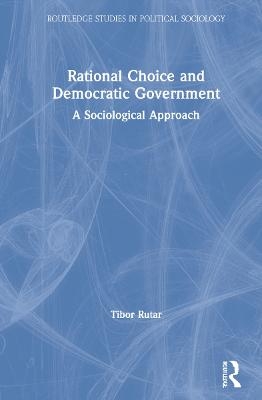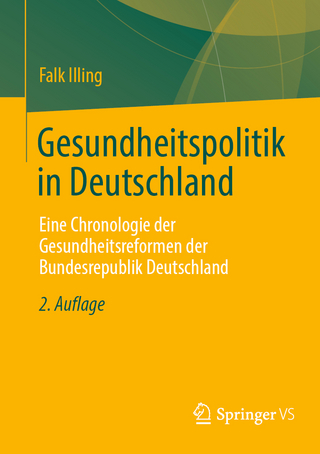
Rational Choice and Democratic Government
A Sociological Approach
Seiten
2021
Routledge (Verlag)
978-1-032-00065-7 (ISBN)
Routledge (Verlag)
978-1-032-00065-7 (ISBN)
Drawing on a range of data from across disciplines, this book explores a series of fundamental questions surrounding the nature of democracy, considering the birth and downfall of democracies, the extent of voters’ political knowledge and ignorance, the logic of political behaviour, and the international effects of democratic rule.
Drawing on a range of data from across disciplines, this book explores a series of fundamental questions surrounding the nature, working and effects of democracy, considering the reasons for the emergence and spread of democratic government, the conditions under which it endures or collapses – and the role of wealth in this process – and the peaceful nature of dealings between democracies. With emphasis on the ‘ordinary’ voter, the author employs rational choice theory to examine the motivations of voters and their levels of political knowledge and rationality, as well as the special interests, incentives and corruption of politicians. A theoretically informed and empirically illustrated study of the birth and downfall of democracies, the extent of voters’ political knowledge and ignorance, the logic of political behaviour in both open and closed regimes, and the international effects of democratic rule, Rational Choice and Democratic Government: A Sociological Approach will appeal to scholars with interests in political sociology, political psychology, economics and political science.
Drawing on a range of data from across disciplines, this book explores a series of fundamental questions surrounding the nature, working and effects of democracy, considering the reasons for the emergence and spread of democratic government, the conditions under which it endures or collapses – and the role of wealth in this process – and the peaceful nature of dealings between democracies. With emphasis on the ‘ordinary’ voter, the author employs rational choice theory to examine the motivations of voters and their levels of political knowledge and rationality, as well as the special interests, incentives and corruption of politicians. A theoretically informed and empirically illustrated study of the birth and downfall of democracies, the extent of voters’ political knowledge and ignorance, the logic of political behaviour in both open and closed regimes, and the international effects of democratic rule, Rational Choice and Democratic Government: A Sociological Approach will appeal to scholars with interests in political sociology, political psychology, economics and political science.
Tibor Rutar is Assistant Professor in the Department of Sociology at the University of Maribor, Slovenia.
1. Against romanticising democracy 2. Wealth – the path to freedom? 3. Voters are not dumb, but we do not know much 4. Politicians are people, not angels 5. For and against democratic peace 6. Conclusion: Fukuyama’s ‘The End of History?’ in social scientific retrospective
| Erscheinungsdatum | 24.09.2021 |
|---|---|
| Reihe/Serie | Routledge Studies in Political Sociology |
| Zusatzinfo | 6 Line drawings, black and white; 6 Illustrations, black and white |
| Verlagsort | London |
| Sprache | englisch |
| Maße | 156 x 234 mm |
| Gewicht | 453 g |
| Themenwelt | Sozialwissenschaften ► Politik / Verwaltung ► Politische Systeme |
| Sozialwissenschaften ► Soziologie ► Allgemeines / Lexika | |
| Wirtschaft ► Volkswirtschaftslehre | |
| ISBN-10 | 1-032-00065-1 / 1032000651 |
| ISBN-13 | 978-1-032-00065-7 / 9781032000657 |
| Zustand | Neuware |
| Informationen gemäß Produktsicherheitsverordnung (GPSR) | |
| Haben Sie eine Frage zum Produkt? |
Mehr entdecken
aus dem Bereich
aus dem Bereich
Eine Chronologie der Gesundheitsreformen der Bundesrepublik …
Buch | Softcover (2022)
Springer Fachmedien Wiesbaden GmbH (Verlag)
59,99 €


